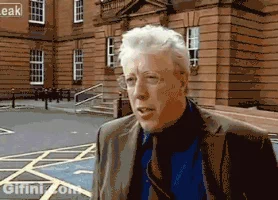By TIM FAULKNER/ecoRI
News staff
 Gov. Gina Raimondo is
all-in on a statewide bag ban and past opponents of the concept aren’t
objecting.
Gov. Gina Raimondo is
all-in on a statewide bag ban and past opponents of the concept aren’t
objecting.
Raimondo gave her
support Feb. 14 at the final meeting of the Task Force to Tackle Plastics,
an advisory board she created last July with
the mission of cutting plastic pollution in the state.
Early on, a statewide
ban on plastic retail bags was the focus of the committee, but a few people on
the 22-member committee objected.
Tony Fonseca of
Packaging & More Inc. in Central Falls had been a regular opponent of
statewide bag ban legislation, but he voted in favor of the proposal recommended by
the task force.
The American Chemistry
Council (ACC) had also argued against a statewide bag ban
and other bans on plastics. But Joan Milas, a local lobbyist for the ACC,
applauded the efforts of the task force. She asked that she and other local
plastics representatives be invited to sit on the task force.
Some task force members,
such as Save The Bay, wanted a broader plan that included addressing stormwater
runoff. The Conservation Law Foundation advocated for a bottle deposit law and
regulations on product packaging.
Others on the committee
wanted assurance that a statewide ban doesn’t weaken or preempt existing
municipal bag bans or prevent cities and towns from enacting restrictions on
other plastics such as straws and foam containers.
EDITOR'S NOTE: The CCA-controlled Charlestown Town Council considered a ban on single-use plastic shopping bags - which would have made it one of the first towns to do so - but chickened out. Instead, the town decided to hawk cloth shopping bags instead. - Will Collette
EDITOR'S NOTE: The CCA-controlled Charlestown Town Council considered a ban on single-use plastic shopping bags - which would have made it one of the first towns to do so - but chickened out. Instead, the town decided to hawk cloth shopping bags instead. - Will Collette
“You don’t want to take
away that local control,” said Dave McLaughlin, executive director of
Middletown-based Clean Ocean Access and a task force member.
McLaughlin said a number
of communities are considering restrictions on other nuisance plastics that are
collected at beach cleanups, such as balloons.
“You want to keep that
momentum going,” he said.
“I’m all for uniformity
and state law overriding local laws, but only if the state law is as strong or
stronger than local ordinances,” said Kate Weymouth, a task force member and
vice president of the Barrington Town Council.
So far, 11 Rhode Island
communities have bans on plastic bags. Barrington recently adopted a ban on foam containers
and other plastics. Cranston is the latest municipality to consider
a bag ban. Mayor Allan Fung opposes the ban.
Unlike the existing
municipal bans, Raimondo’s bag ban would be the only one to include a mandatory
fee on paper bags.
The 5-cent tax would be
paid to the store to recover the cost of paper bags. A single plastic bag costs
a retailer about 2 cents; a paper bag about 10 cents. Consumers can also use
reuseable bags.
“We want to have that
fee on paper to incentivize consumer behavior change; to make up some of the
additional costs to businesses. But we want to be mindful of the fact that 5
cents for a bag is a lot for some Rhode Islanders,” said Jonathan Berard,
executive director of Clean Water Action Rhode Island and co-chair of the
plastics task force.
Last year, Providence
nearly passed a bag ban with a 10-cent fee, but it was vetoed by Mayor Jorge Elorza
after the Sierra Club of Rhode Island and the Racial and Environmental Justice
Committee objected, saying the fee is a financial burden for low-income
residents.
To avoid that issue with
the proposed statewide bag ban, Berard said the task force would be asked to
launch a program to distribute free reusable bags to residents. Providence
currently offers a bag exchange at city libraries.
Berard noted that the
task force agreed that a statewide ban is preferable to municipal bans because
it helps businesses comply with a single regulation while reducing confusion
about recycling rules for residents.
Raimondo promised that
the bag ban would be the first of additional acts by the task force to reduce
plastic waste.
“You all know as I know
that plastics are an enormous source of our pollution and so this is only a
first step,” the governor said. “I want to announce today that I plan to sign
another executive order leading to stage 2 of this work.”
A final report from the
plastics task force is expected to be delivered to Raimondo on Feb. 18.
Legislation will be introduced at the Statehouse soon after. Sen. Josh Miller,
D-Cranston, a member of the task force, introduced a bill calling for a statewide
ban on plastic bags and foam containers.
Raimondo and Janet Coit,
director of the Rhode Island Department of Environmental Management, urged
everyone to help pass something so that it creates momentum to pass other
regulations and/or create programs.
The environmental group
Burrillville Against Spectra Energy interrupted the meeting to deliver a paper
valentine to Raimondo stating its opposition to the proposed Burrillville power
plant.